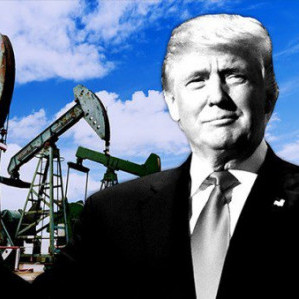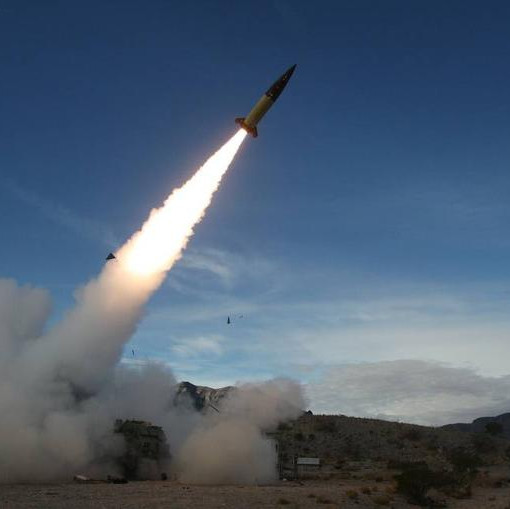Top stories from the Russian press on Wednesday, October 27th, prepared by TASS
Nezavisimaya Gazeta: NATO gives Ukraine access to its weapons arsenals
Ukraine participated in the meeting of the NATO North Atlantic Council Committee on Armaments on October 26 for the first time. Previously, participation in such meetings was the prerogative of alliance member countries, and Kiev sees the event as a hint that Brussels has taken a direct course towards accepting Ukraine into the organization, Nezavisimaya Gazeta writes. But whether NATO leaders will want to finally embrace Ukraine remains questionable. Should Ukraine officially join NATO, Donbass will become the alliance’s problem and hardly any EU member will want to send their soldiers to a real war.
The leadership of the Armed Forces of Ukraine has repeatedly reported on transitioning the country's army and navy to NATO standards. Therefore, representatives of Kiev were on the same page with the alliance in discussing armaments.
Ukraine’s Ministry of Defense said that at the meeting the parties talked about innovations in the military-technical sphere, cooperation in the realm of science and the military-industrial complex, and achieving an optimal balance of military needs with budgetary opportunities. NATO is able to offer Kiev full military programs and plans, the newspaper writes. This support, according to media reports, was expressed in new supplies of weapons and defense resources by the Pentagon to the tune of roughly $60 mln.
Military expert, retired colonel Nikolai Shulgin told Nezavisimaya Gazeta that the Ukrainian head of state would be able to discuss new military projects in a few days, when he pays a visit to the United Kingdom. "UK Prime Minister Boris Johnson is already waiting for him, having called Russian President Vladimir Putin before the meeting. They discussed the issue of Donbass. Johnson is clearly haunted by this problem. At the same time, London is becoming one of the main strategic defense partners of Ukraine and this is alarming," Shulgin noted.
Nezavisimaya Gazeta: Russia, Saudi Arabia brace for fight with environmentalists
Moscow has resolutely joined the "anti-green" front with Saudi Arabia. Russian Deputy Prime Minister Alexander Novak stands opposed to the imposition of renewable energy sources. Russian officials attributed their more conservative position to their high responsibility for providing energy to the world's population, Nezavisimaya Gazeta. However, experts believe that even the two biggest exporters of oil might not be able to prevent the onset of decarbonization.
At the 26th UN Climate Change Conference of the Parties (COP26) in Glasgow, Russia and Saudi Arabia will act as a single bloc taking on fewer commitments to move towards carbon neutrality, the newspaper writes. The two largest energy powers should prevent the artificial imposition of renewable energy sources and decarbonization to the detriment of the sustainability of national energy sectors, Russian Deputy Prime Minister Alexander Novak believes.
The arguments of energy producing countries in the debate with the green agenda now seem to have more weight than ever, according to Nezavisimaya Gazeta. Oil and gas prices have skyrocketed, in addition, old coal power plants are reopening in Europe. "Key Western politicians continue to talk about betting on renewable energy sources, the need to accelerate the energy transition, and so on. But the voices of skeptics are also making headway. Just look at the attempt by a number of European countries led by France to start a new nuclear renaissance and attain the inclusion of nuclear power plants in the desired energy balance of the future," Leading Expert at the National Energy Security Fund Stanislav Mitrakhovich told the newspaper.
According to the expert, public opinion in some countries on the accelerated energy transition issue could change, if utilities prices keep soaring and the competitiveness of European industry keeps on declining.
"In my opinion, Russia and Saudi Arabia have no chance to influence the de-carbonization plans of the world's largest economies," Finam analyst Sergey Kaufman told Nezavisimaya Gazeta. "I think Novak meant that Russia, Saudi Arabia, and other major oil and gas suppliers should not excessively reduce investments in hydrocarbon production, despite the global climate agenda and their own goals to reduce emissions," he added.
Izvestia: Moscow sees Barents Council as Northern Europe’s most successful cooperation format
Russia regards cooperation in the Barents Region as an essential channel of dialogue, and the most successful format in Northern Europe, Russian Foreign Minister Sergey Lavrov said at the 18th Ministerial Meeting of the Barents Euro-Arctic Council (BEAC). The Russian top diplomat suggested that the nations of the region develop a mechanism for the mutual recognition of vaccination certificates and supported strengthening cooperation in the Barents Sea region with a focus on environmental issues, Izvestia writes.
The council is unique in a way that not only these nations but also separate regions of all four countries cooperate with each other, Lavrov said, clarifying that this cooperation format remains a connecting thread and an important channel of dialogue for Russia. "BEAC is the most successful format of cooperation in the North of Europe, demonstrating strong immunity to fluctuations in the political environment," Lavrov said.
In his speech to the session’s audience, Lavrov focused on ecology and climate. He also noted that the launch of its own Barents financial mechanism in 2022 will be a significant step in developing the region. However, the meeting’s agenda was not limited to climate and mutual financial assistance. Lavrov suggested that the countries of the region develop a mechanism for the mutual recognition of vaccination certificates. He stressed that for Russia, the post-pandemic socio-economic recovery is "an absolute priority."
BEAC is a peaceful format, mainly engaged in financing projects in the Barents region, so there really is no political tension in it, Member of the Expert Council on the Arctic and Antarctic Alexander Pilyasov told Izvestia. "This is a smaller version of the Arctic Council, where a decision is taken collectively to bankroll a particular regional project. There was no political confrontation and the distributions are fair," the expert told Izvestia.
Vedomosti: Influencer marketing sector doubles since onset of pandemic
Since the beginning of the pandemic, the influencer marketing sector has more than doubled and may reach over 18 bln rubles ($259 mln), experts told Vedomosti. This surge can be attributed in part to the coronavirus-related restrictions on offline buying as well as the general growth of social media commerce. According to analysts, the active development of advertising tools on specific platforms is also contributing to this phenomenon.
"By the end of 2021, we forecast that the influencer marketing sector will more than double that of 2019 - up to 16.5-18.5 bln rubles," Chairman of the Influencer Marketing committee at IAB Russia Anton Petukhov told Vedomosti. He added that in comparison with the indicators of 2020, the market will grow by 50-70%.
Social networks are one of the main channels for obtaining new information for consumers under 40, Director of Media & Advertising Risk Services at Deloitte Violeta Rodionova told the newspaper. For young people under 19 years old, this channel even surpasses live communication.
Large amounts of advertising money have poured into the digital market, according to Leyla Salieva, marketing director for Epicstars, a business that gives advertisers a network of several thousand bloggers for advertising. One reason for this was the active emergence of new company sectors in the midst of the pandemic, including online education and food delivery services, where the expenses of advertising with bloggers and influencers account for up to a third of the total starting marketing budget.
According to the expert, the price of integration with bloggers with 10-15 mln subscribers reaches around 400,000 rubles ($5,756) on average. For influencers with an audience of over 1 mln subscribers, the fee can be around 150,000 rubles ($2,159).
Izvestia: Russian government expands list of industries eligible for financial aid
The Russian government decided to expand a list of industries that can qualify for support under the anti-crisis program, First Deputy Prime Minister Andrey Belousov announced at a meeting with representatives of SMEs. According to Izvestia, six areas were added on and they are dentistry, dry cleaners, hairdressers and beauty salons, supplementary education, repairs, and childcare services.
Deputy Minister of Economic Development Tatyana Ilyushnikova explained that, according to the preliminary estimates, with all the additions (with the program extended for a year, as well as expanding the list of industries) in 2022, the program will require up to 20 bln rubles ($287 mln) of extra funding. At the same time, Belousov promised the business sector to consider the possibility of added benefits for entrepreneurs who vaccinate their employees on time.
According to Izvestia, large enterprises in the field of culture and catering will also be able to receive assistance through the program.
Expanding the support program to new industries is what the business sector has long been asking for, Alexander Kalinin who heads Opora Russia, an SME lobby, told Izvestia. He noted that the program was also extended to catering and cultural enterprises that are not formally SMEs, but who have nevertheless been seriously suffering from the new restrictions.









